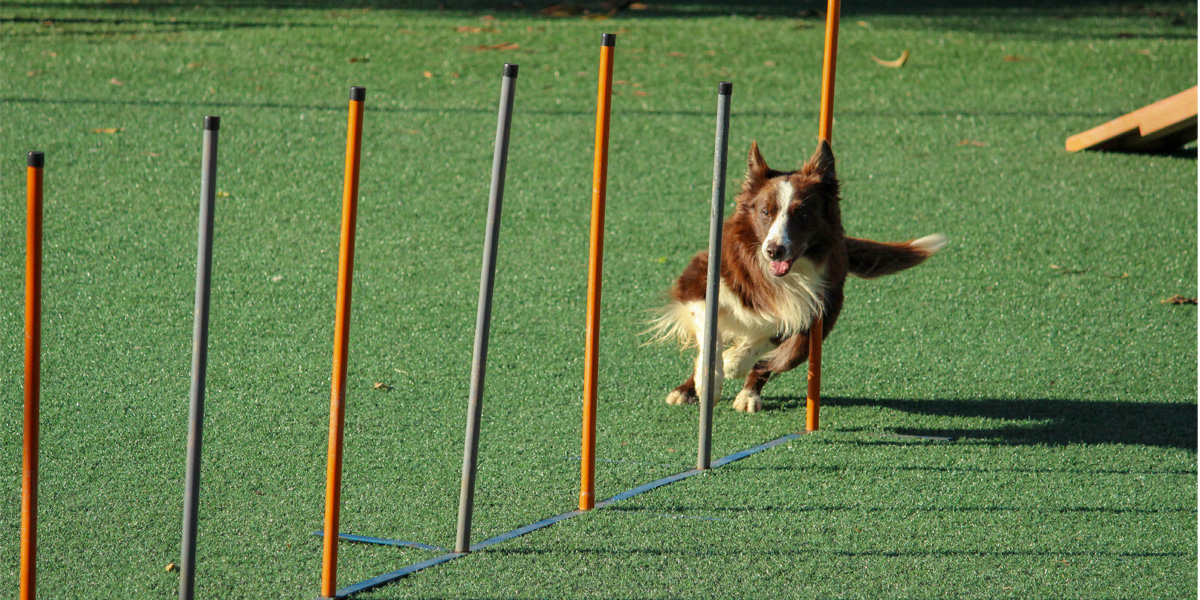5 Fast Facts You Didn’t Know About Exercise for Dogs

From super-athletic Australian Shepherds to couch potato Pugs, every dog needs exercise to stay healthy. While most of us realize that our dogs need to stay active to stay in shape, there’s so many surprising reasons to keep dogs on the move. In celebration of National Canine Fitness Month, here’s five facts to help get your dog off the couch.
1 Active dogs have active pet parents Research shows that people who have dogs are more likely to get enough exercise than non-dog owners. What’s more, there’s a positive correlation between dog owners who are active and those whose dogs get plenty of exercise. It goes to show that your dog can help you stay health and vice-versa
2 Exercising while young can help your dog age gracefully While there’s not much we can do to stop our dogs from aging quickly, exercise can help them enjoy a few more healthy years with us. Exercise not only prevents obesity but also strengthens the muscles that surround the joints, helping to reduce the severity and put off the onset of osteoarthritis. With plenty of lean protein to fight muscle loss and a joint supplement to manage inflammation, you can keep your dog active and healthy for longer. As a bonus, recent studies suggest that exercise may help prevent canine cognitive dysfunction, the dog version of Alzheimer’s disease
3 Exercise is great for your dog’s digestion Exercise helps the gut move smoothly, and has also been shown in studies to boost the diversity of beneficial bacteria that help break down food and support your dog’s immunity. For dogs that have occasional indigestion with no serious gastric issues, you just might see improvements just by making sure your dog gets enough exercise. To make the most of your dog’s gut health benefits, you can also supplement probiotics for dogs to kickstart a balanced gut microbiome
4 Your dog’s exercise needs are unique Puppies need just 15 to 20 minutes of light exercise per day, broken up by plenty of naps. Until they’re about 12 months old, puppies have soft growth plates made of cartilage at the ends of their bones, making them susceptible to injuries that can lead to skeletal issues as they grow. For adult dogs, you can aim for thirty minutes to two hours of exercise per day - not necessarily all at once
5 Dogs are sprinters, not marathoners Making sure your dog gets 30 to 120 minutes of exercise per day may seem impossible, but it’s much easier than you think. Dogs are natural sprinters, they prefer to use their energy in short bursts with plenty of rest between. Their daily exercise needs can be met with varied activities throughout the day, from walks, jogs, playtime, trick-training, nose-work, and more
Ready To Get Up and Move with Your Dog?
Just like people, dogs can get injured or overexerted if they jump into a new exercise routine too quickly. Don’t forget to warm up, cool down, and gradually work towards your dog’s exercise goals. For dogs that have chronic health issues, signs of exercise intolerance, in need of a weight loss plan, or otherwise need extra support, make an appointment with your veterinarian before starting a new exercise routine
VISION
Every pet deserves to live a long, happy, healthy life.














































